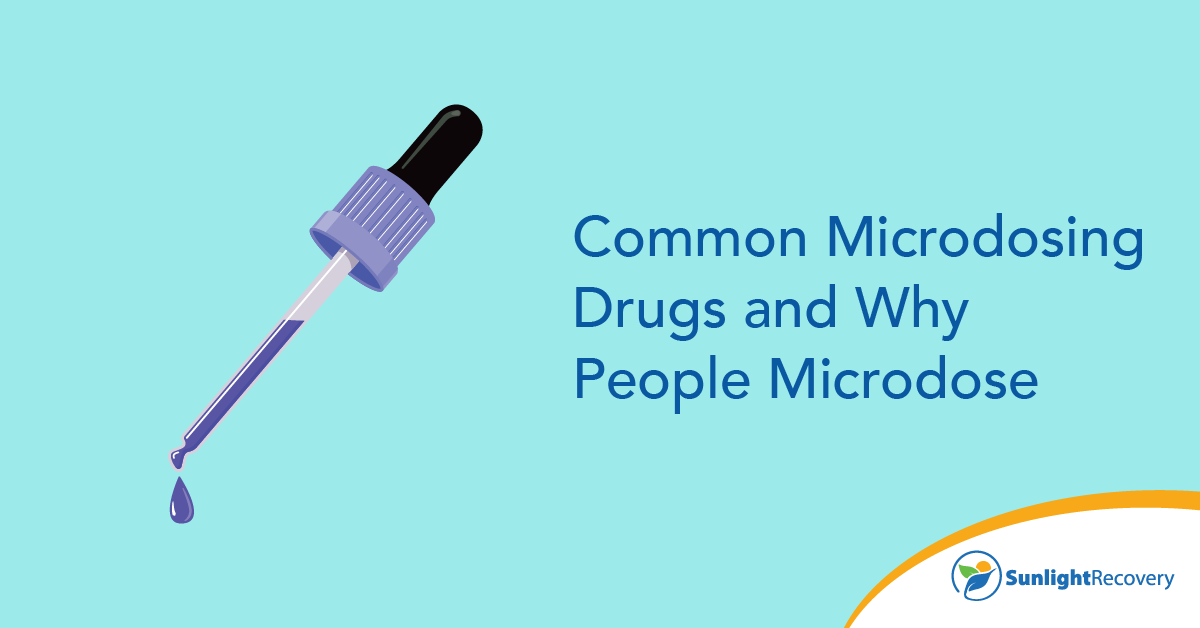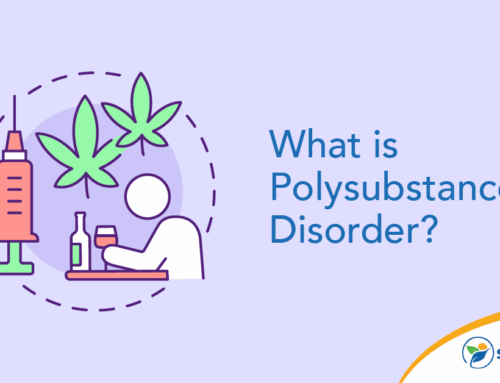Have you heard of microdosing? It’s the practice of taking small doses of certain substances that’s gaining popularity for various reasons. While it used to be associated with psychedelics, such as LSD, the latest trend is to microdose the weight loss medication semaglutide, sold under the brand names Ozempic and Wegovy.
But is microdosing safe, and does it work? We explore the appeal, the potential benefits and risks and the impact of microdosing on mental health.
What Is Microdosing and Why Is It Gaining Popularity?
Microdosing involves taking about 5%-10% of a standard dose of a substance to achieve subtle benefits without experiencing full psychoactive effects. The practice was originally popularized by Silicon Valley professionals seeking enhanced focus and creativity and has since expanded into health and wellness communities.
People turn to microdosing for various reasons, including:
- Mental health improvement. Some believe it helps with depression, anxiety and PTSD.
- Cognitive enhancement. Users report increased focus, problem-solving skills and productivity.
- Emotional regulation. May promote better mood stability and reduce stress.
- Weight management. Some individuals use weight loss medications to curb appetite and manage weight.
Drugs Commonly Used
The substances people use vary depending on their goals. Some focus on mental and emotional well-being, while others use microdosing for metabolic health and weight loss.
- Psychedelics (LSD, psilocybin). Used for mood enhancement, cognitive improvement and emotional processing.
- Ketamine. Low-dose ketamine has been studied for depression treatment.
- Semaglutide (Ozempic, Wegovy). The goals of Ozempic microdosing are appetite suppression and weight loss.
- Nootropics (modafinil, methylphenidate). Used to boost focus and energy, often by students or professionals.
- Cannabis (THC, CBD). Microdosing THC may provide relaxation and pain relief without strong psychoactive effects.
Each of these substances carries unique risks and benefits, which is why careful consideration and medical supervision are advised.
Potential Advantages and Disadvantages
While some users swear by microdosing, scientific research is ongoing. Early findings suggest both promise and potential dangers.
Possible Benefits
Mood Enhancement
Many users report feeling less anxious and more emotionally balanced when using certain substances, particularly psychedelics such as psilocybin or LSD.
Microdosing these substances may promote neural plasticity, which could help individuals process emotions more effectively and reduce symptoms of depression and anxiety. However, while preliminary studies indicate positive effects, more large-scale research is needed to determine efficacy in treating mood disorders.
Improved Focus and Productivity
Microdosing some substances has been associated with enhanced cognitive function, with users claiming it helps with concentration, creativity and problem-solving. Professionals, students and artists have turned to the practice in the hope of improving their ability to think clearly and remain engaged when completing complex tasks.
Certain substances, such as low-dose LSD or modafinil, may increase dopamine levels, which play a key role in motivation and cognitive flexibility. While this benefit remains largely anecdotal, some small studies suggest microdosing may improve attention span and cognitive performance.
Emotional Resilience and Creativity
Some users believe taking small doses of psychedelics helps them approach challenges with a more open mindset, leading to greater self-awareness and problem-solving abilities.
Psilocybin, in particular, has been studied for its potential to enhance emotional regulation and empathy, making it a potential tool for personal development. However, these effects vary widely, and there’s no standardized dosing regimen to ensure consistent results.
Weight Management
A recent trend is semaglutide microdosing, particularly with Ozempic or Wegovy. Originally developed for diabetes management, semaglutide medications have been found to suppress appetite and help with weight loss.
Some people use these medications in an attempt to control cravings and reduce food intake without experiencing the side effects of taking higher doses. While studies support the effectiveness of these medications, there’s little research available on whether microdosing them is beneficial.
Potential Risks
Lack of Regulation and Medical Oversight
Most substances used for microdosing, particularly psychedelics, aren’t FDA-approved for that purpose. This means there are no standardized guidelines for dosing, administration or long-term safety. Because of this, individuals often rely on trial and error, which can increase the risk of unintended side effects.
Tolerance and Dependency
Repeated microdosing can lead to tolerance, meaning users may need increasing amounts of a substance to achieve the same effects. This is particularly concerning for stimulants and psychoactive drugs, which may contribute to psychological dependence.
While psychedelics such as LSD and psilocybin aren’t considered physically addictive, frequent use of other substances, such as ketamine and modafinil, can result in dependency.
Adverse Effects
Microdosing is often promoted as a way to experience the benefits of certain drugs without the intense side effects of full standard doses. However, even small amounts may cause unwanted reactions. For example, Ozempic and other semaglutide-based treatments can result in nausea, dizziness, headaches or gastrointestinal distress. Psychedelic microdosing may cause increased anxiety, restlessness or mild hallucinations in some users.
Unknown Long-Term Effects
One of the biggest concerns is the lack of long-term safety data. While some studies suggest psychedelics may have neuroprotective benefits, others raise concerns about the potential for cognitive changes over time.
There’s also little research on how frequent dosing might affect mental health, especially for individuals with underlying conditions such as anxiety disorders or schizophrenia.
While microdosing may seem appealing, it’s essential to weigh the potential risks and consult a medical professional before experimenting.
Should Microdosing Be Used for Mental Health Treatment?
Microdosing isn’t a substitute for traditional mental health treatments. While some research suggests psychedelics and ketamine may have therapeutic potential, these substances should only be used under medical supervision.
Alternatives for Mental Health
If you’re struggling with mental health issues, there are safer, evidence-based approaches:
- Cognitive behavioral therapy (CBT). A proven method for managing anxiety and depression.
- Medication management. FDA-approved antidepressants and mood stabilizers have extensive research backing.
- Lifestyle adjustments. Regular exercise, proper nutrition and mindfulness can support emotional well-being.
Microdosing may offer benefits for some. However, it’s important to approach it with caution. If you’re considering alternative mental health treatments, professional guidance is essential.
Should You Microdose Weight Loss or Other Medications?
Microdosing medications is a growing trend, but it’s not without risks. While some claim it helps with focus, mood or weight loss, scientific evidence is still catching up.
If you’re seeking professional guidance on your mental health treatment options, Sunlight Recovery offers expert care tailored to your needs. Contact us today to explore safe, evidence-based treatments for improving your mental and physical well-being.






